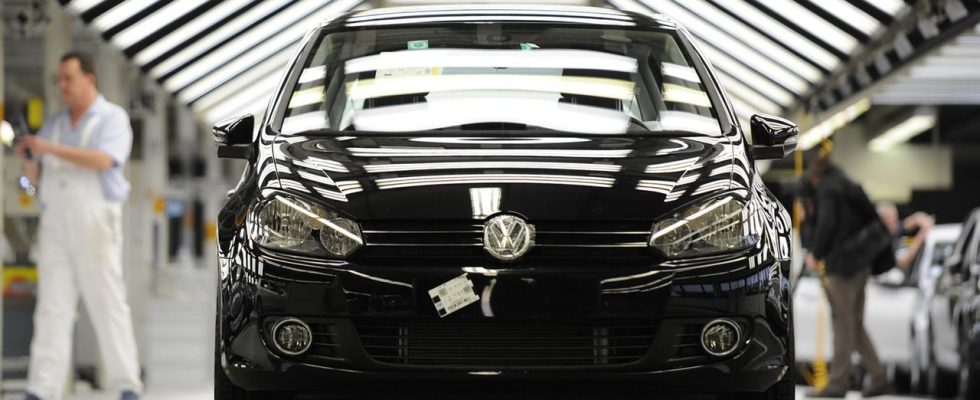Volkswagen and Mercedes-Benz have had a difficult first quarter. Model changes and supply chain problems caused earnings to fall. But the hope for a better second half of the year remains.
A weak start to the year has caused profits at the German car companies VW and Mercedes-Benz to collapse. The companies recorded weak sales, primarily due to current model changes. The year 2024 should still be satisfactory.
At the Volkswagen Group, weaker demand from China and a number of model launches had a significant impact on results. Operationally, i.e. before taxes and interest, the result slipped by around a fifth to 4.59 billion euros. After taxes, the group earned 22 percent less at 3.71 billion euros. Sales also fell in the first quarter compared to the same period last year, but only by one percent to just under 75.5 billion euros.
Delivery bottlenecks as a brake on profits
According to VW, an important reason for the decline is delivery bottlenecks at Audi: Revenues fell significantly here because V6 and V8 engines were temporarily not sufficiently available. At Porsche, too, business wasn’t going as smoothly as usual. High upfront costs for new models and weak sales reduced the sports car manufacturer’s profits by almost a third, and the return fell by four percentage points.
However, things looked better in the Core volume group, which includes the core brand Volkswagen as well as Skoda, Seat/Cupra and the commercial vehicle division with the VW bus. Here the return increased to 6.4 percent.
Save for more returns
CEO Oliver Blume has prescribed a billion-dollar savings program for the Wolfsburg-based car manufacturer. Four billion euros are expected to be reached this year. According to Blume, the annual forecast can be maintained accordingly. After that, sales should grow by up to five percent, and the operating return should be between 7.0 and 7.5 percent.
The German competitor Mercedes-Benz also reported a weak first quarter. Supply chain problems and ongoing model changes also played an important role here. The drop in sales of lucrative top models was particularly significant in the decline in profits.
More expensive models sold less at Mercedes
The bottom line is that Mercedes made around a quarter less consolidated profit at 3.03 billion euros. Sales fell by 4.4 percent to 35.9 billion euros in the first quarter of the year. In the most important passenger car division, the operating profit margin before interest and taxes, adjusted for special effects, fell surprisingly significantly by 5.8 percentage points to 9.0 percent.
Only in the second half of the year will the sales mix shift towards more expensive cars and provide a boost, the company said. The management around boss Ola Källenius also saw no reason to deviate from the annual forecasts. Mercedes-Benz sold fewer high-priced cars in the first quarter. When it comes to passenger cars, there are signs of easing of the current delivery bottlenecks for the GLC and E-Class models.
48 volt batteries are in short supply
The bottlenecks affected deliveries with 48-volt batteries, for which Mercedes had already promised an improvement. The company said that overall sales levels should have marked the lowest point in the first quarter. Mercedes-Benz also confirmed its annual forecasts: sales should reach the previous year’s level, but the operating result should be slightly below the previous year.
On the stock exchange, however, the figures were acknowledged with price reductions for VW and Mercedes-Benz shares. The two papers are currently losing between three and four percent, making them one of the biggest daily losers in the DAX.

